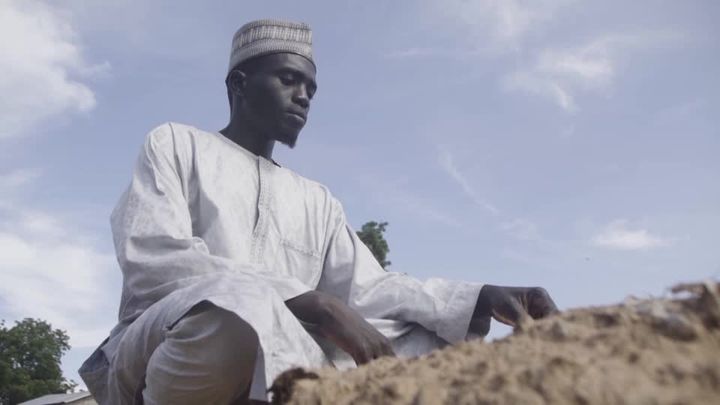Nine-month-old Mohamat burned with fever for three days before his parents finally carried him along rough dirt paths to the nearest health centre in northern Cameroon. By the time they arrived, it was too late. He died of malaria that day, one of many young victims in a region now struggling with the fallout of sudden cuts to American aid.
Local doctors say Mohamat might have survived if U.S.-funded community health workers had been on hand to diagnose him earlier, or if the clinic had stocks of injectable artesunate, the frontline treatment for severe malaria. But the health workers are gone, and the drugs are scarce. The community is left to confront malaria with fewer tools than it had in years past.
Health officials across northern Cameroon say malaria deaths, once in decline, are again climbing sharply. They attribute this reversal to funding freezes by Washington that disrupted critical support networks built up over nearly a decade. Clinics now see patients later, treat them with fewer medicines and send families home with little more than advice to pray.
Mohamat’s father, 30-year-old farmer Alhadji Madou Goni, sat outside his mud-brick home in mourning, his wife beside him fingering prayer beads. He said he once hoped his son would have a chance at escaping poverty. Now he hopes only that no other family must endure the same loss. “Since there is hardship here, and people don’t have the means, we hope aid comes,” he said quietly.
The President’s Malaria Initiative, launched in 2005 under George W. Bush, was widely credited with saving millions of lives in Africa. By distributing bed nets, funding drug supplies and paying community workers stipends, it slashed malaria cases and deaths in regions like Cameroon’s Far North. But when President Donald Trump returned to office in January, he ordered a sweeping pause on foreign aid, including PMI.
Although a limited waiver was issued in February to keep some malaria programmes alive, the damage was already visible. In Cameroon, PMI had been supporting nearly half of the region’s 2,824 community health workers. They were given small stipends, bicycles, training and supplies to travel to villages otherwise cut off from care. Now, nearly all of them are inactive.
Dr. Jean-Pierre Kidwang, who coordinates malaria control efforts in the Far North, said the retreat of U.S. support was devastating. “With PMI funding, we moved from a mortality rate of 17 percent to 8 percent,” he explained. “Now, with the current malaria peak, we are already seeing a rate of 15 percent. We may get to a point where all the gains against malaria are reversed.”
Between 2020 and 2024, official records showed malaria deaths in Far North Cameroon had fallen from 1,519 to 653. This year, however, health officials expect the number to soar again. Clinics are reporting deaths faster than they can tally them, and families like the Gonis are burying children at an alarming pace.
Prosper Laurent Messe Fouda, an official with Cameroon’s National Malaria Control Programme, confirmed that 2,105 of the 2,354 U.S.-funded health workers in the Far North and North regions are no longer in service. Their absence has left villages vulnerable, with households walking days to seek care or resorting to traditional remedies that cannot treat the disease.
Doctors and nurses interviewed in the region described empty medicine cabinets and frustrated families. “Parents come asking for artesunate,” said a nurse in Maroua, the regional capital. “We have to tell them we don’t have any. We used to never turn them away. Now we feel helpless.”
For years, the United States was the backbone of the global malaria fight. The World Health Organization says that from 2010 to 2023, Washington provided 37 percent of global malaria programme funding. Trump has argued that the U.S. pays disproportionately for foreign aid and insists other countries must contribute more. His administration has dismissed concerns, with Secretary of State Marco Rubio claiming repeatedly that “no one has died as a result of the cuts.”
On the ground in Cameroon, though, health workers say the evidence is plain. “The deaths we see today are linked to the absence of support,” said one local doctor. “Children who could have survived last year are dying this year.”
In dusty villages where the sun beats down and mosquitoes breed in stagnant water, families remember what the aid once meant. A health worker arriving on a bicycle, carrying rapid diagnostic tests and medicine, could mean the difference between life and death. Without them, parents face impossible choices: sell what little food they have to pay for transport, or wait and hope their child recovers.
For Goni and his wife, the decision came too late. They buried their son behind their home, next to the fields of sorghum that sustain them. As dusk fell, neighbors gathered to console them, but nothing could fill the void left by Mohamat’s short life. “I feel so sad about my loss,” Goni said. “We need the help back. We cannot fight malaria alone.”
As the rainy season fuels the spread of mosquitoes, the crisis is only expected to deepen. Aid workers warn that unless support is restored quickly, Cameroon risks not just losing ground but returning to the darkest days of malaria, when every household had a story like the Gonis’.



